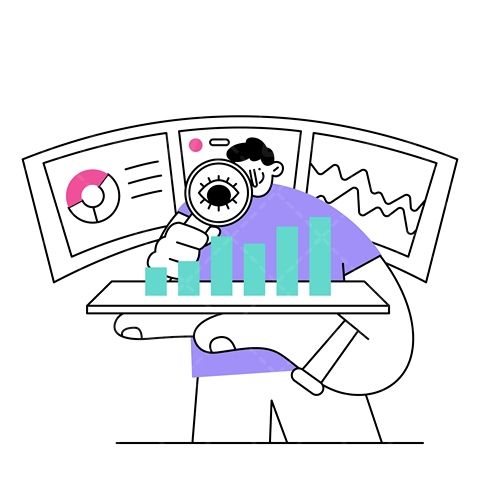Everyone wants to see their life better day by day. In this article, we discuss 11 questions that may change our lives by asking them.
Benjamin Franklin started his day with this question: “What good thing should I do today?” And he ends his day with this question: “What good did I do today?”
Many great thinkers constantly questioned everything.
Albert Einstein said: “Learn from the past, live for today, hope for the future.” The most important thing is to stop asking questions.
Of course, constantly questioning ourselves is not an easy task in practice because we usually prefer to avoid subjecting ourselves to questioning too much.
But doing this and enduring the effort will be worth it, leading to increased self-confidence and improved daily life.
To speed up such work, I have prepared 9 questions to ask yourself every day.
1- If today is the last day of my life, will I still do everyday things or not?

In 2005, about a year after Steve Jobs learned he had pancreatic cancer, he went there to speak at Stanford University’s graduation ceremony. In that speech, he said that for 33 years, he looked at himself in the mirror every morning and asked himself: “If today were the last day of my life, would I still do the things I want to do today or not?”
If the answer was “no” for many days, then it was clear that he should change his life.
Jobs continues his speech: “Remembering that I will die soon is my most important tool for facing the big choices in life. Because almost everything- all external expectations, all pride, all fear of embarrassment or failure- vanishes in the face of death, and it leaves only the things that matter. Remembering that you are going to die is the best way I know. To escape the trap of having something to lose. You are naked right now, And there’s no reason not to follow your heart.”
2- Is getting rich worth it?

A Quora user answered this question well: “Many people have the illusion that if they had more money, they would be happier. After they become rich, they see that they are still not happy, and this causes them to enter into a crisis in their lives. If we were part of the middle class, we would have had many opportunities to achieve what we wanted. If we are unhappy now, we will not be happy with money.”
This question determines whether getting rich is the priority of our work or not. By doing so, we can avoid big mistakes in our lives.
3- What pain and suffering do I want in my life?
Self-healing blogger Mark Manson has written that happiness requires struggle and an understanding of what we are willing to struggle for.
“What defines our success is not “What do you enjoy?”” explains Manson. Rather, the question is, “What pain and suffering do we want to endure?” The quality of our lives is not defined by the quality of positive moments but by the quality of negative experiences. When we deal with negative experiences, we can deal with life more easily.”

4- What is the difference between before and now?
If you’re having trouble creating a new habit, Gretchen Rubin recommends thinking about a time when you successfully changed your behavior.
By asking this question, we can understand the factors of success in the past and apply them to today.
Rubin continues: “If we use it correctly, we can achieve more success than before.”

5- How are you?
A Quora user, Michael Hopkins, wrote an interesting text: “This question is the most important question for the central part of our existence. This question leads to many internal dialogues that we must have with ourselves daily.
6- Why so serious?
This question makes us not take life so seriously and put our daily events in perspective. It is also more enjoyable to ask ourselves this question in a joker tone.

7- Do I have friends who support me, challenge me, encourage me, and help me grow?
Nella Conway, another member of Quora, wrote in this regard: “They say that we are the average of 5 people with whom we spend the most time. Think about the people in our lives. Do they help us grow as human beings? Or do we spend our time with those who only drain our energy, are negative, complain, and at the end of the day, we ask ourselves why we don’t feel happy with them? Be very strict in choosing close friends. Let’s choose a circle of friends who have things in common with us and have the same values; let them develop their personalities and value time, knowledge, and friendship.
8- Did I try my best today to define my goal? Did I try my best to achieve today’s goals?
These two questions are two questions that Marshall Goldsmith asks himself every day.
In his blog, he writes that by asking these questions, he forces himself to answer questions every day that may be forgotten during the day and in daily pressures.
According to him, six questions from these are included in the “active questions” category, which will lead to more success.

These questions are as follows:
1- Have I done my best to increase my happiness?
2- Have I done my best to find meaning?
3- Have I done my best to be active?
4- Have I done my best to create a positive relationship?
5- Have I done my best in setting clear goals?
6- Have I tried my best to achieve the goals?
“The big difference between asking, ‘Do you have clear goals?’” Goldsmith explains, “Have you done your best to set clear goals?” The former defines the current character, but the latter challenges us to do something.
He says there is nothing wrong with asking passive questions, but “asking such questions makes us indifferent to the question and not feeling responsible for answering it.”
9- What went well today?
Francesca Gino and her colleagues at Harvard Business School experimented. He asked his employees to spend 15 minutes at the end of the day writing down what went well. After completing the experiment, he concluded that those who write and think about improving their work perform 22.8% better.
Gino says, “The fact that they have to write the answer to this question at the end of each day has a great effect. This is because they have to think more and concentrate. In answering this question, if we only think, we will easily deceive ourselves and get the desired answer.

Leave a Reply